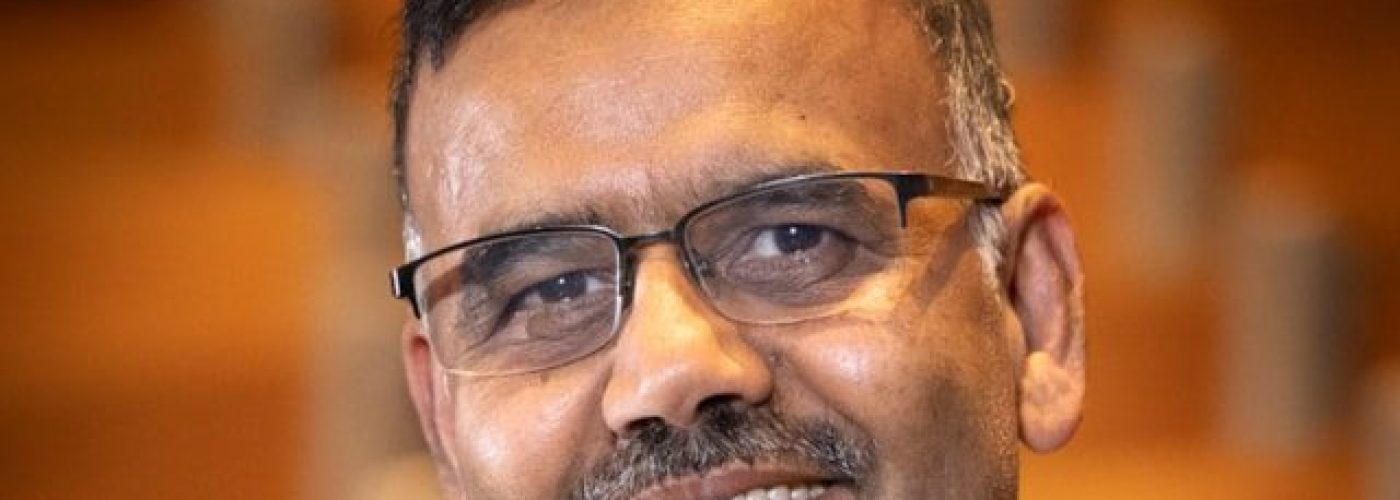A new Chair in Energy appointment by the University of St Andrews heralds a groundbreaking era in battery technology research, crucial for addressing the climate emergency.
The University of St Andrews, in partnership with the Faraday Institution, is delighted to announce the appointment of Professor Venkataraman Thangadurai as its new Chair in Energy.
Professor Thangadurai, who joins St Andrews from the University of Calgary in Canada, has been awarded a Faraday Institution Adjunct Professorial Fellowship. The Faraday Institution Adjunct Professorial Fellowship programme is designed to enable universities in its community to attract leading battery scientists to the UK or promote new people to contribute to fields related to energy storage research.
Professor Thangadurai’s research interests involve the design and preparation of novel solid electrolytes exhibiting fast oxide ion, lithium ion, and sodium ion conduction and mixed ionic-electronic conduction based on inorganic crystal structures. His work primarily explores novel solid electrolytes, electrode materials, and interfaces to enhance battery performance, safety, and longevity. By addressing key challenges in energy storage, his research aims to facilitate the adoption of more efficient and sustainable energy technologies, contributing significantly to the advancement of renewable energy systems and electric vehicles.
The newly created position of Chair in Energy at St Andrews will see Professor Thangadurai bring his extensive expertise to the University’s School of Chemistry. His leadership will significantly enhance the St Andrews research capabilities and contributions to sustainable energy solutions, the development of technological spin-out opportunities and Knowledge Transfer Partnerships (KTPs). This strategic appointment aligns with St Andrews dedication to advancing global energy sustainability through cutting-edge research and innovation.
Professor Thangadurai’s research will look to the future of battery technology, playing a critical role in combating the climate emergency by enhancing energy storage solutions, essential for integrating renewable energy sources like solar and wind into the power grid.
Speaking about his appointment, Professor Thangadurai said: “I am delighted to be given this opportunity to continue my research at St Andrews, working with the world’s leading researchers in battery and renewable technologies. The support of the Faraday Institution in making this role a reality shows the commitment to the development of next generation of battery technologies so we can make a real change in the world, playing our part in tackling the climate emergency that impacts us all. The work we will continue and develop at St Andrews will ensure safe, sustainable, renewable energy solutions for generations to come.”
Professor Thangadurai, will also work with colleagues from the School of Chemistry, including Professor John Irvine CBE, as part of the Faraday the NEXGENNA research project into sodium-ion batteries. The Faraday Institution’s NEXGENNA project is accelerating the development of sodium-ion battery technology by taking a multi-disciplinary approach incorporating fundamental chemistry right through to scale-up and cell manufacturing. Its aim is to put on the path to commercialisation a sodium-ion battery with high performance, low cost, that has a long cycle life and is safe. Professor Thangadurai will deliver the keynote address at the 24th International Conference on Solid State Ionics in London on Friday 19 July.
Building, Design & Construction Magazine | The Choice of Industry Professionals





